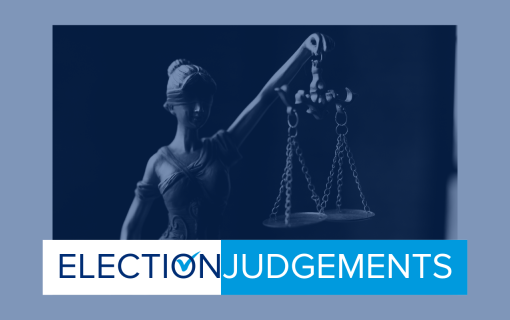In Mauritania, Peaceful Elections despite Political Tensions
Mauritania held legislative and municipal elections on Saturday, November 23. While political tensions have been prevalent – the opposition boycotted the polls – Election Day was reported to be peaceful and orderly.
Pierre Kadi Sossou, IFES Senior Electoral Operations Specialist in Mauritania, answers some questions about the poll and what it means for the African country.
How was the mood on Election Day?
The mood was peaceful and calm. The operations took long, given their complexity – there were four different ballots, which were not easy to read and fill out. Despite the long waiting time, voters remained relatively patient in the queue.
How was the security?
Security was well assured by police and gendarmerie. There was no consistent trouble during voting operations.
How was the turnout?
The Independent National Electoral Commission (CENI) estimated turnout to be over 60 percent. Although this figure is likely, it is not yet confirmed.
What is the effect of having the opposition boycott the elections?
A National Democratic Institute survey administered shortly before the vote predicted 92 percent of voters were ready to exercise their right. Further, from our observation, it appears that the boycott did not significantly affect Election Day turnout.
When results are expected?
This is tough to tell, given the high number of voters, especially those who came to the polls close to closing time. Because of this, several offices had to close very late at night. This delay seriously impacted vote counting.
Additionally, the ballot was quite complex. There were four different votes involving more than 60 political parties. Collecting results is underway. The CENI has released a statement calling for voters and stakeholders to be patient, allowing for orderly and transparent vote counting. We might have to wait for two additional days, maybe more, before results are released.
When will elected officials take office?
Elected candidates will take office after all disputes are resolved and final results are proclaimed. According to Mauritania’s constitution, newly-elected municipal councils will have a mandatory first regular meeting in January if the electoral calendar is followed – as is planned. Otherwise, this body will not meet until the next planned session in April 2014.
The current parliament’s regular session will end mid-January 2014. Starting from that date, newly-elected members might be convened in an extraordinary session, or wait until May 15 to begin their tenure in parliament’s second regular session. The President of Mauritania has the power to convene an extraordinary session, while ordinary sessions are scheduled in the constitution.
What do these elections say about democracy in Mauritania?
In recent years, Mauritania's political landscape has been characterized by systematic, ongoing grievances nourished by the Coordination of Democratic Opposition, which boycotted these elections. These polls were held against a backdrop of this political tension, and exacerbated by disagreement between the ruling party and a radical opposition.
It is true that these elections will not bring a peaceful solution to current political cleavages, but they may alert international opinion on the urgency of frank, sincere dialogue in Mauritania before presidential elections in 2014. Democracy in Mauritania can be strengthened through such dialogue and exchange of ideas.









